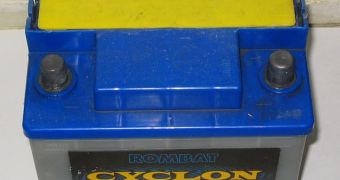A rich country's trash is a poor nation's treasure. Mexico is definitely not an exception to this rule, since the wellbeing of its financially-challenged inhabitants is threatened by no-longer needed lead batteries imported from the US.
Mexico has increased the number of imported batteries while also scaling the amount of lead pollution.
This metal is considered a hazardous element whose presence is correlated with a wide series of diseases like kidney failure, high blood pressure, abdominal pain and severe behavioral and development issues experienced by young children, reports the New York Times.
The number of batteries brought from the US has grown dramatically because the Environmental Protection Agency (EPA) has decided to protect the Americans while making the industry comply with stricter safety standards.
Currently, Mexico imports up to 20% American used cars and industrial batteries, a lot more compared to what it settled for in 2007, only 6%.
The noticeable difference is somehow explainable, since lead, a toxic metal with a devastating impact on human health is a crucial element in the manufacturing processes of cell phones, solar power arrays and vehicles.
A recent report indicates 20 million lead-based batteries cross the Mexican border every year, coming from the US only. Most of these used products contain up to 40 pounds of toxic metal, enough to put the health of plant workers and residents at great risk.
Mexicans can't afford this luxury so even though the danger posed by chemicals is practically the same, the two nations operate while respecting different standards.
American workers in this line of business are protected by a strict legal framework. However, the law doesn't stop Mexican people from threatening their own wellbeing through risky operations.
Even if the US is providing most of the lead batteries, EPA looks the other way, stating it “does not inspect, monitor or verify the Mexican facilities.”
Representatives from Industrial Mondelo plant have been warned and fined by authorities several times now, since lead particles coming from used batteries, generated during their operations can be spotted around schools, markets, playgrounds and even food carts.
Lead exposure threatens the lives of young children and Mexican authorities are willing to prove this fact through a series of tests but don't benefit from the financial support required by this project.
Most of the organizations devoted to reducing the danger of lead hazard, like Occupational Knowledge International, note an appropriate solution to this problem would be to ship used batteries to countries respecting the same level of safety standards.

 14 DAY TRIAL //
14 DAY TRIAL //